Thanksgiving is coming… what a great time to express gratitude for the abundance on our table and in our lives. Some of us aren’t feeling particularly grateful though, perhaps suffering from pandemic panic or seasonal stress.
But what if you can eat your way to happiness?
You may have heard of “SAD,” Seasonal Affective Disorder, a type of depression related to seasons when days become shorter with fewer hours of sunshine. Interestingly enough, the acronym has another meaning. Many nutritionists refer to S.A.D. as the “Standard American Diet.” S.A.D. contains about 63% processed foods such as potato chips, packaged snacks and soda; nearly 25% of calories from animal foods; and only about 12% of calories from plant-based foods such as fruits, vegetables and whole grains. The S.A.D diet also tends to be low in Omega-3 fatty acids, e.g., raw nuts and seeds, fish and olive oil.
Research shows the S.A.D. diet can indeed make us sadder! Numerous studies indicate that consuming the opposite of the S.A.D. diet – a Mediterranean diet high in fresh fruits, vegetables, healthy fats and whole grains, fewer processed foods, more fish and less meat – can improve our mood.
The foundation to eating your way to happiness can be found on your plate. The Mediterranean Diet which is high in plant-based foods has been shown to enhance mood and decrease risk of stroke, diabetes, cancer, high blood pressure and more. Are you getting your “five a day,” meaning five servings of fresh fruits and vegetables? Are you eating plenty of nuts, seeds, whole grains and fish?
One of the reasons our S.A.D. diet makes us sadder is because what we eat affects our gut microbiome, the trillions of cells that make up our gut. We have more cells in our microbiome than our entire body. Research shows that 95% of serotonin, a potent neurotransmitter which causes a sense of wellbeing, is made by our gut microbiome, along with many other potent neurochemicals.
A healthy gut can mean a happy mood. By eating a better diet, we increase our intake of “prebiotics,” plant fibers that help “feed” the good bacteria in the gut. A healthy microbiome can have a significant impact on our overall health and mood. Prebiotics can naturally be found in apples, artichokes and chicory root, and fermented foods such as tempeh, sauerkraut, yogurt and kefir.
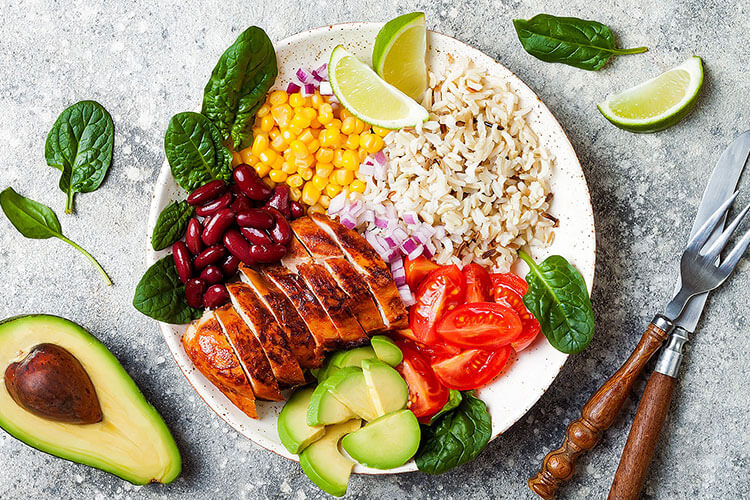

Another technique for increasing our serotonin levels and improving our mood is increasing our dietary intake of the amino acid tryptophan, the precursor to serotonin. Foods high in tryptophan include egg whites, pumpkin seeds, chicken, fish, milk and turkey (yes, too much tryptophan is why you feel sleepy and blissful after a Thanksgiving meal).
Mood and food, or nutrition and the role it plays in depression, can fill an entire library. This article is barely skimming the surface, but also be aware that if you are prone to bouts of low blood sugar, known as hypoglycemia, this can increase anxiety in susceptible people. In this case, be sure to include a source of protein such as almonds, cheese or lean chicken with every meal. Some people need to eat every two to three hours in order to avoid low blood sugar. Avoiding excessive hidden sugars (look at the total grams of sugar on the label) can also help avoid those highs and lows.
If you’ve already switched to a Mediterranean diet or have tried other nutritional strategies such as decreasing your dietary sugar intake and still suffer from the blues, you may want to consider nutritional supplements. Some people prone to anxiety and depression have a genetic defect related to folic acid. If this is the case (you can order a simple at-home gene kit to find out), be sure to take only multivitamins or B-complex that has methylfolate, which is the active form of folate. This can decrease the potential for anxiety and depression for people who have this genetic defect, which is actually quite common.
Two helpful supplements for improving your mood are probiotics and high-potency fish oil. Probiotics can help those who suffer from an imbalance of unhealthy bacteria in the gut caused by many factors including chlorinated water, antibiotics, the S.A.D diet and even stress. If you’d like to try a probiotic, go with a minimum of 10 billion CFUs and a minimum of five different strains (unless you are advised to take a stronger probiotic under the advice of a Registered Dietitian Nutritionist). For a potent fish oil, look for one with about 500 mg of DHA and 800 mg of EPA per serving. It’s hard to get enough DHA/EPA in capsules, so a liquid supplement is best.
So if you want to improve your attitude – and feel more gratitude! – consider eating your way to happiness in time for Thanksgiving.
Sheri Weitz, RDN, CDE is a Registered Dietitian with a private practice in Westchester, and she provides clinical nutrition services for Manchester Medical. Sheri also teaches Zumba classes… her “happy pill.” To find out more about her services or for a free consultation, go to www.MovetoWellness.net.





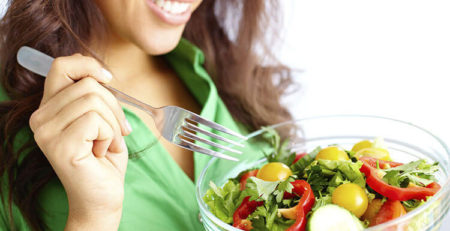
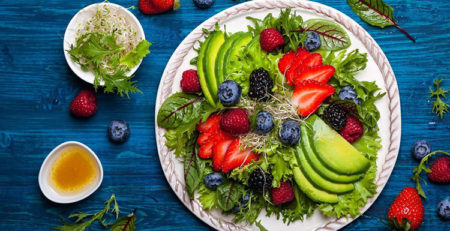


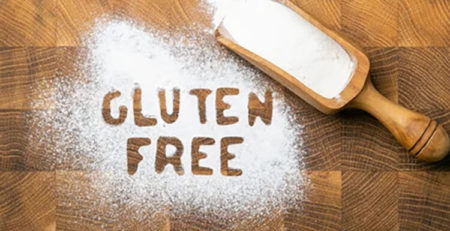
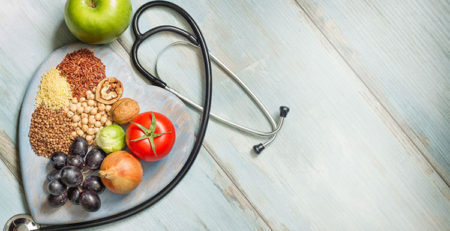

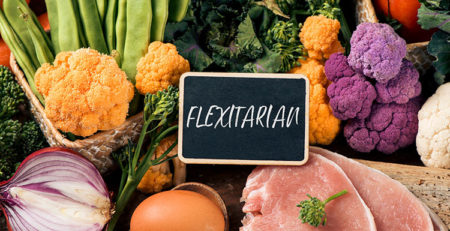
Comments (10)
I’m extremely pleased to discover this website. I wanted to thank you for ones time just for this fantastic read!! I absolutely enjoyed every part of it and i also have you bookmarked to see new stuff in your site.
Definitely, what a great blog and revealing posts, I definitely will bookmark your site. Best Regards!
I got what you intend,bookmarked, very decent website.
I reckon something truly special in this website.
Really nice design and good subject material. Please also check my website. I love cars!
I cannot thank you enough for the blog article.Thanks Again. Really Great.
Keep functioning ,splendid job!
Hi there, You’ve done a great job. I will certainly digg it and in my view suggest to my friends. I’m sure they’ll be benefited from this website.
Hello there, I found your blog via Google while searching for a related topic, your website came up, it looks good. I have bookmarked it in my google bookmarks.
Very informative post.Much thanks again. Will read on…